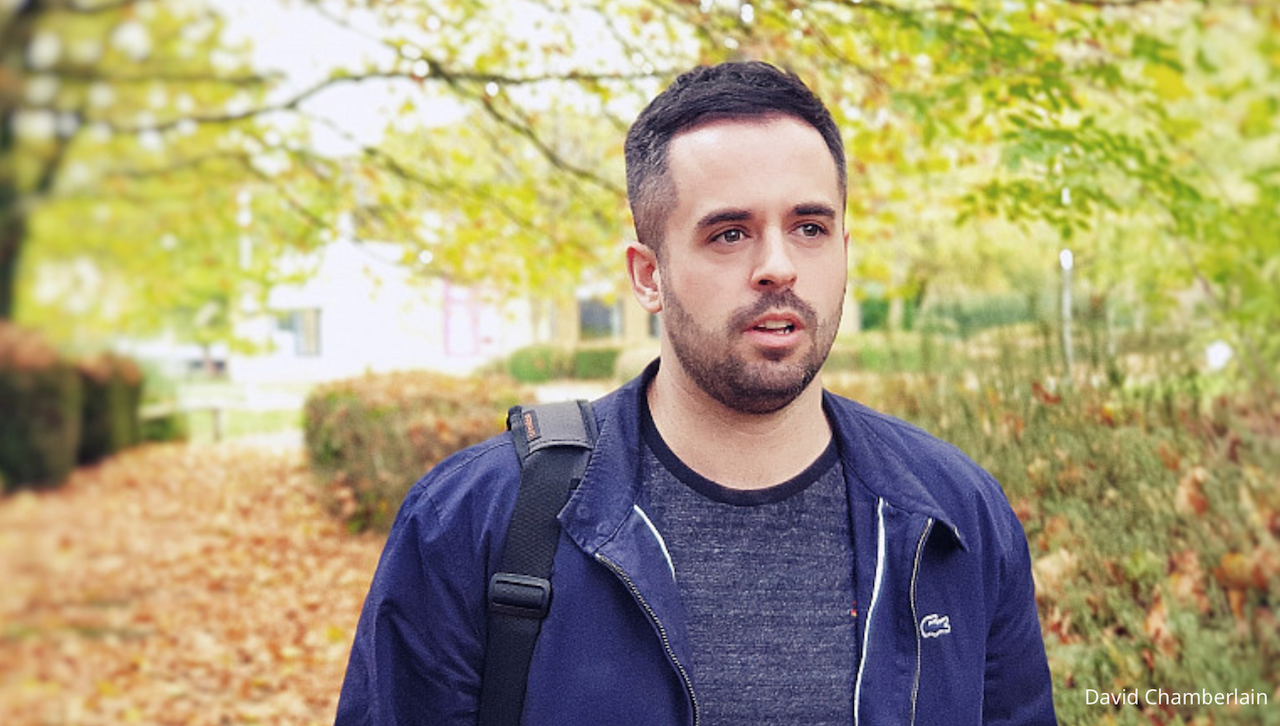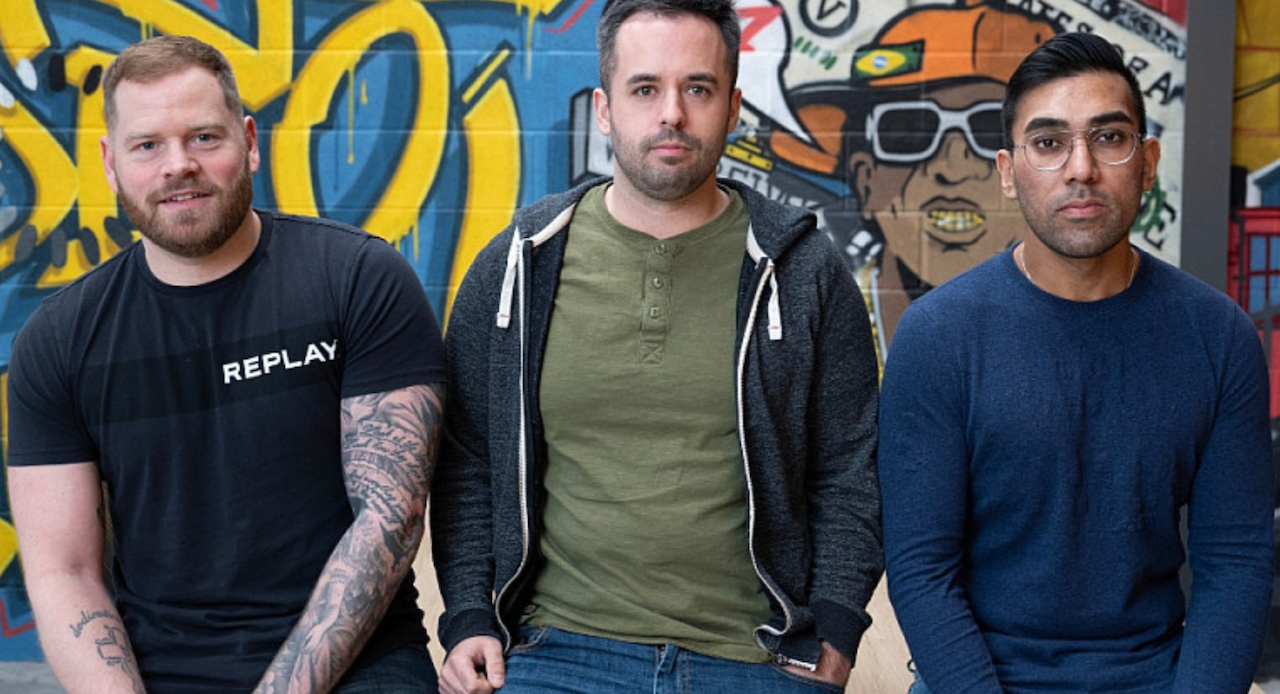The Other Side: Hiring My First NED by David Chamberlain, Co-Founder of Viddyoze.com
I had heard of Non-Executive Directors (NEDs) many times before. But I never really knew what they did or what role they played in organisations.
I also thought that you only ever found them in FTSE-listed companies.
Having now gone through the process of finding and hiring NEDs, what I now know is just how important they are. NEDs have certainly been instrumental in transforming our business, Viddyoze, in unimaginable ways.
And yes, we now know that NEDs don’t just exist in companies that have listed on the stock exchange.
Backstory

The purpose of this article is to share with you the three key lessons I’ve learnt having gone through the NED recruitment process. But before I do, it’s worth briefly going back to the beginning.
Around two years ago, a member of our executive team suggested we should bring in a non-exec. I’m not ashamed to say that when it came to scaling a business, we, as a founding team, lacked experience – or at least we thought we did.
The exec had someone in mind. The person he put forward had been part of an executive team that had just been through a private equity transaction. He was looking for his first non-exec role, so we arranged a meeting. It went well and we got along; and I could certainly see how having someone with the experience of getting to where we wanted to go, could help us to get there too.
So we booked in a further strategy day to get more of an idea of what things could look like if we were to work together long-term.
That also went well… until we started speaking about what he wanted.
And that brings me right back to today. Here are those lessons.
Lesson 1: do your own due diligence
£60,000 per year. And 5% of the company.
My. Jaw. Dropped.
It sounded like a lot – a hell of a lot. But what did we know? We hadn’t worked with NEDs before. There was only one thing for it – to do some research and figure out if what he was asking for was market rate for a company like ours, or whether it was way off.
It turned out to be the latter.
I found that £60k was more of a FTSE 250 salary – and definitely not what a NED working for a company turning over £3million, which we were at the time, would be getting.
Also, the idea of having a 5% stake in our business for nothing, no investment… a gift.
While my research showed that the equity/option play is something that interests and incentivises many NEDs, all the people I spoke to – more on this – said they would never ask for that upfront.
It would, instead, they told me, be a topic of discussion that would come a few months into their role. And, moreover, at a point in time where they had demonstrated real value, too.
So if not 5%, then what? Well, for a company of our size at the time you were looking at around the 1% mark. That’s quite a difference.
I had spoken to five NEDs after that initial bombshell. It’s important to note that none of them were being interviewed – and they had no vested interest in our business. There was nothing in it for them. They just told me how it was with the companies they were at.
Funnily enough we actually ended up hiring one of the people I had spoken to as a NED at Viddyoze. Due diligence not only provides you with vital insight, it can also get you talking to some interesting people, too.
Lesson 2: Hire what you lack – but someone who has been on the same journey
This may not always apply – it really depends on what you do and what stage you’re at in your journey as a founder.
I have spent most of my career working online – as have my business partners. We’ve never really networked or or taken any debt into any of our businesses. And we’ve never raised any outside capital.
What we’ve always been clear on from the outset of it all was our plan – to eventually exit our business (which hasn’t changed). Being able to do so, we realised, required the kind of expertise we simply didn’t have.
So that immediately ruled out hiring a NED with an expertise in marketing. We had that.
Also, as a small but fast-growing business, the idea of hiring someone who had worked in large corporations all their life just didn’t make sense. It was important to us that we worked with someone who had overcome the challenges we were – and are going to – face.
The person we eventually brought in was, in many ways, like a missing jigsaw piece. He not only had something we lacked – such as a vast network – but he had also been on the same journey that we were on. He had also bootstrapped various businesses like ours and exited them successfully, as well.
Lucky for us it was more than just a well-informed judgement call – 18 months later from hiring him as a NED, our revenue has almost quadrupled.
Is he responsible for all of that growth? Of course not. But truth be told, without him we would still be a fast-growing business – just one that nobody really knew about. It’s because of his network and experience that people know more about us. We now get a lot more opportunities, a lot more press and a lot more leads. And yes, ultimately, a lot more sales.
Lesson 3: Hire talent that you feel like you can use
It was important to us that whoever came on board as a NED was just as excited about our business as we were (still are, in case you’re wondering). When you’ve literally poured your blood, sweat and tears into something you care about passionately, it feels good when someone ‘gets it’ the way you do.
So, if you’re looking to hire a NED, my advice is to make sure you’re not just doing it to exclusively boost your revenue. That’s essential, of course, but arguably too limited in scope.cThe real value comes from someone who has the same kind of energy and excitement for your business that you have.
They’re the kind of person you know you can call when the world is against you or when you’ve stuck. Someone who can scrutinise your ideas and tell you how it really is when you can’t make heads or tails out of a problem. A NED who always has time for you.
What you really want to do then, when it comes to appointing a non-exec, is to recruit a partner – and not just a means to an end, the kind of person who simply turns up every now and again without really ever getting to properly know your business or, in indeed, you or your fellow founders.
In fact, your NED should feel like they’re a bona fide part of your business, a dependable and trustworthy colleague who is always mentoring and guiding you at key points in your business’ evolution. That’s a recipe for real success.
Final thoughts

Believe me, there are plenty of more lessons that I’ve learnt over the last two years – and all worth further discussion. But these three are the ones that have really stood out for me when it’s come to NEDs.
In fact, I’d go so far as to say that if you do your due diligence, identify gaps in your business that you can’t necessarily fix yourself, and focus on characters as much as talent, you’re already well on your way to finding someone who will make a real difference.
They say that when you hire a NED, you get the benefit of hindsight. So, in hindsight, would I do anything different?
Yes. I’d hire a NED sooner.

